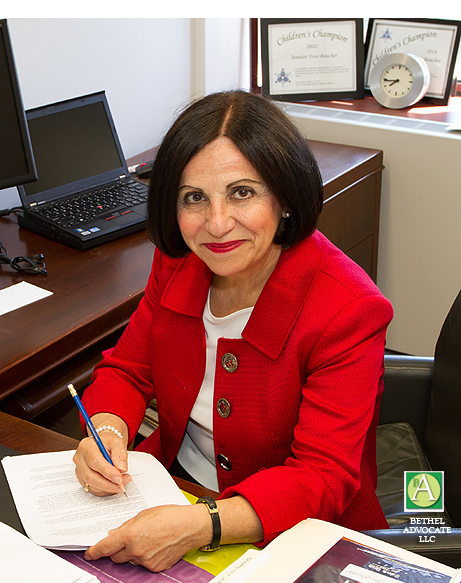
Report by Paula Antolini
January 19, 2018 7:29PM EDT
OPINION / TRANSPORTATION
Sen. Boucher: ‘Look at Transportation Spending Before Asking for Tolls, Higher Taxes’
January 18, 2018
Governor Malloy’s Transportation Commissioner James Redeker took his Chicken Little routine on the road recently. In each community, he proclaimed that the Special Transportation Fund sky is falling and only tolls and tax increases can save us.
Governor Malloy set the stage for Redeker’s appearances last week when he announced the indefinite suspension of nearly 400 repair and improvement projects. It seems he intends to maximize commuters’ pain as a way to lower their resistance to giving the state even more money than they do already.
Many of my Democrat colleagues are ready to join the Governor and commissioner on the toll train. They have been laying the track for several years. They readily point to surrounding states suggesting that we are ignoring a vast funding resource.
Before we start spending that imaginary toll money, I think we should look at how we spend the money we have.
A 2016 study by the Reason Foundation found that Connecticut ranked 44th in cost effectiveness for highway performance. To that end, Connecticut spends nearly $480,000 for each mile of road in the state. The national average is just over $160,000 per mile.
I’m sure we can all agree that the condition of Connecticut’s pothole riddled roadways don’t seem to reflect that high price tag. Last I checked, the streets were not paved with gold.
So, if we aren’t paying a high price for superior quality, where does all the money go?
The Reason Foundation said that administrative costs significantly contribute to the price. Connecticut spent more than $83,000 per mile in administrative costs compared to $10,000 per mile nationally.
However, even if we subtract the administrative costs, Connecticut still outspends the national average by more than $250,000 per mile.
During the last seven years, Connecticut spent $567 million on a new busway that costs $17.5 million to operate each year. It spent more than $1 billion on the as yet to be finished Hartford to Springfield rail line, which is expected to cost $27 million each year to run.
Contrast the fact that the $155 million the state bonded in 2016 for the Springfield line would have covered almost all of the costs for repairs needed for the Metro-North New Haven Line.
The busway and Springfield line were part of the Governor’s 30-year, $100 billion transportation plan. A plan he began to implement without an established way to pay for it.
How can the administration and legislators go to Connecticut taxpayers, hat in hand, and ask for more money when it doesn’t responsibly spend the money it has? How can they proclaim that tolls are the answer to the state’s transportation funding when a comprehensive study on tolls has not been done? And above all, how can they do it with a straight face?
Before we consider tolls, Connecticut needs to take an extensive look at how transportation projects are prioritized and how the cost of those projects are calculated. We must also look at the projected costs for projects compared to the final price tag. What changed and why? How do we make the process more efficient?
Connecticut taxpayers are paying top dollar for a transportation system with more than 57% of all state and local roads in poor condition. Another 22% of roads are in mediocre condition.
Throwing more money into the Special Transportation fund before we examine and resolve our spending issues is the height of irresponsibility. We have a lot of work to do before we can consider asking Connecticut taxpayers to step on the toll train.
State Senator Toni Boucher (R-26) is Co-Chairman of the legislature’s Transportation Committee. She represents the communities of Bethel, New Canaan, Redding, Ridgefield, Weston, Westport, and Wilton.
###


Leave a Reply